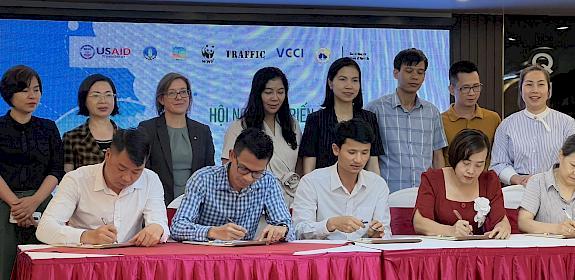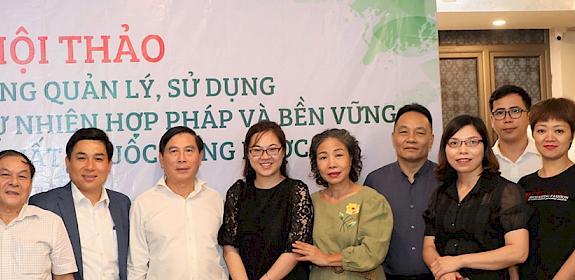
A Helmeted Hornbill photographed at the Belum-Temengor Forest Complex in Peninsular Malaysia © Sanjiitpaal Singh
i
Published 23 Tháng chín 2016
TRAFFIC report shines spotlight on Lao PDR’s failure to tackle wildlife trafficking
Johannesburg, South Africa, 23rd September 2016—The role of Lao People’s Democratic Republic (PDR) in the international trafficking of protected wildlife will be under scrutiny today in the lead up to the Convention on International Trade in Endangered Species of Wild Fauna and Flora (CITES) meeting that gets fully underway this Saturday.
Helmeted Hornbill trade in Lao PDR
Report author(s):
Kanitha Krishnasamy, Boyd Leupen, Or Oi Ching
Publication date:
September 2016



